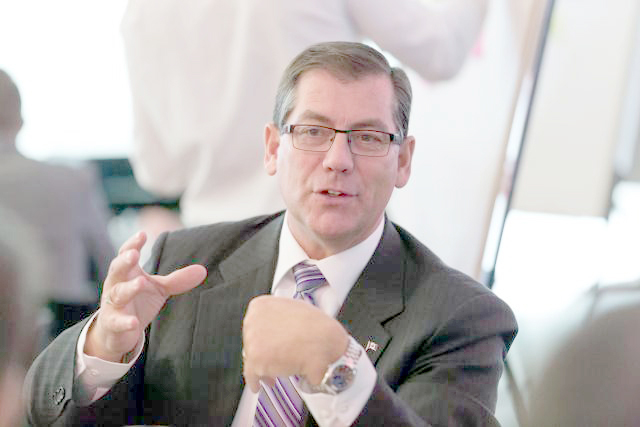
It was a raucous week in Parliament as the Trudeau government released its budget and also proposed changes to the House of Commons rules.
The budget came down on March 22 and MP for Battle River-Crowfoot, Kevin Sorenson, has some very serious concerns. One of which is there is no path back to a balanced budget. This is a contrast to how the Conservatives managed a recession.
"We invested in infrastructure and things that would kick start jobs and the economy. But the only way we would do that with deficits is that we would have a strategy to come back to balanced budgets because that is what Canadians expect,” he said.
“Without a plan it is so easy to keep spending and that is what this government is doing.”
While many reports said the budget was innocuous, he has concerns.
“Most of the national media is saying it is inconsequential…now we are seeing them take away more tax credits,” said Sorenson. “There were tax credits for those using public transit in the past. If you had a bus pass and didn’t drive your car to work in the big cities there was a tax credit. They are adding taxes to Uber, they are taxing beer and wine.”
There is really nothing in this budget for farmers, they are starting a discussion on deferral of cash sales,” he said.
“They are just looking for tax dollars, I think they realize that they just spend so much they have to start hiking taxes.”
Some are lauding the budget. The Petroleum Services Association of Canada (PSAC) said it was pleased by a one-time payment of $30 million to Government of Alberta to stimulate economic activity and employment in the re-
source sector. PSAC has been advocating to decommission orphan wells, pipelines, and facilities.
Sorenson said other aspects of the budget could hurt the sector.
“They are cutting some of the exploratory tax credits,” he said. “They are taking that incentive away for companies to go find gas and oil.”
One change in the budget that could affect Drumheller, according to Sorenson, because it targets the tourism sector, is the removal of the ability of visitors to be reimbursed for GST they paid while visiting.
“We want tourists to come to Canada, we know our local economy thrives when there is an uptake in tourism, and any measure that says that is not important is disappointing.”
Even as the business of budget was working its way through, there was just as much action, if not more, in the Procedures and House Affairs Committee as the opposition delayed a vote on a motion on a study paper called Moderation of the Standing Orders of the House of Commons. Some of the proposed changes include changing question periods and eliminating Friday sittings.
“That is the issue right now, they are trying to shut it down on Friday and we are certainly fighting that. People are calling my office and saying ‘don’t tell me you are talking about a four day work week,’” said Sorenson.
He said the battle is happening in committee meetings, in parliament and even in petitions. Sorenson says the opposition is working hard to make sure the issue is in front of the people.
“That’s not how we do it, we do a lot of consultations with Canadians and constituents. We go around and find out what you think,” he said.






























